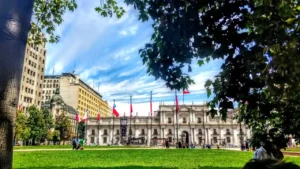The University of Cambridge stands as one of the most prestigious and respected academic institutions in the world. Founded over 800 years ago, it has become synonymous with intellectual achievement, ground-breaking research, and timeless tradition. From its medieval architecture to its modern scientific breakthroughs, Cambridge has left a profound impact on education, culture, and society.
A Brief History
The University of Cambridge was founded in 1209 by a group of scholars who left Oxford after a dispute with local townspeople. Seeking a new place to pursue learning and scholarship, they settled in the town of Cambridge. Over time, the institution grew in size, stature, and influence, receiving its royal charter from King Henry III in 1231.
Throughout the centuries, Cambridge has been at the heart of many significant historical movements. It played a crucial role during the Renaissance, the Reformation, and the Enlightenment. Its commitment to rigorous inquiry and debate helped shape modern scientific and philosophical thought.
Colleges and Structure
Cambridge is a collegiate university, meaning it is made up of a number of autonomous colleges, each with its own internal structure and traditions. There are currently 31 colleges, including well-known ones such as Trinity College, King’s College, St John’s College, and Pembroke College.
Each college provides accommodation, pastoral support, and academic guidance to its students. However, lectures, laboratories, and examinations are organized by the central university. This dual system offers students a tight-knit community experience along with the vast resources of a major institution.
The university also has over 150 departments, faculties, and institutions across six academic schools: Arts and Humanities, Biological Sciences, Clinical Medicine, Humanities and Social Sciences, Physical Sciences, and Technology.
Academic Reputation
Cambridge’s academic reputation is virtually unmatched. It has produced an extraordinary number of leading figures in every field imaginable — scientists, writers, philosophers, politicians, and artists. Over 120 Nobel Prize winners are affiliated with Cambridge, the most of any institution in the world.
Famous alumni include Sir Isaac Newton, who developed the theory of gravity; Charles Darwin, who formulated the theory of evolution; Alan Turing, a pioneer of computer science; and Stephen Hawking, renowned for his work on black holes and cosmology. Literary giants such as John Milton, Lord Byron, and Sylvia Plath also studied at Cambridge.
Cambridge consistently ranks among the top universities globally in subjects ranging from mathematics and natural sciences to law, economics, and engineering.
Research and Innovation
Research is at the core of Cambridge’s mission. The university has been at the forefront of countless innovations that have transformed the world. Cambridge scientists were instrumental in discovering the structure of DNA, and the university has been a powerhouse in fields such as physics, engineering, biotechnology, and artificial intelligence.
The Cambridge Biomedical Campus is one of the largest centers for health science and medical research in Europe. Meanwhile, Cambridge’s strong links with industry have fostered a dynamic innovation ecosystem, often referred to as the “Silicon Fen,” a hub for tech startups and research-based companies.
The university’s emphasis on interdisciplinary collaboration and real-world impact continues to drive discoveries that address major global challenges, from climate change to public health.
Student Life
Student life at Cambridge is vibrant and rich with tradition. Students can participate in hundreds of clubs and societies, covering everything from drama and music to entrepreneurship and sports. The Cambridge Union Society, established in 1815, is one of the oldest debating societies in the world and has hosted figures like Winston Churchill, Ronald Reagan, and the Dalai Lama.
Rowing is a major part of student life, with the historic Boat Race against the University of Oxford being one of the most famous sporting events in the UK.
The university also celebrates centuries-old traditions, such as formal dinners, known as “formal halls,” academic dress for ceremonies, and the famous May Ball season, which marks the end of the academic year with grand celebrations.
Admissions and Diversity
Cambridge is known for its highly competitive admissions process. Each year, it attracts some of the brightest minds from across the UK and around the world. Academic excellence, passion for the chosen subject, and intellectual curiosity are key factors considered during admissions.
The university has made significant efforts in recent years to broaden access and improve diversity among its students. Programs like Cambridge Access initiatives aim to encourage applications from underrepresented groups, including students from disadvantaged backgrounds and international communities.
The student body today is incredibly diverse, with thousands of students from more than 120 different countries enrolled at undergraduate and postgraduate levels.
Global Influence
Cambridge’s influence extends far beyond the confines of the United Kingdom. Its alumni network spans the globe, with leaders in government, academia, business, and the arts all having ties to the university.
Cambridge also collaborates extensively with universities and research centers worldwide, engaging in joint research projects, student exchanges, and international conferences. Its global outlook ensures that Cambridge remains a vital part of the international academic and scientific community.
The Future of Cambridge
While Cambridge is deeply rooted in tradition, it is also firmly focused on the future. The university continues to invest in new technologies, facilities, and teaching methods to maintain its position at the forefront of global education and research.
Initiatives like Cambridge Zero, aimed at tackling climate change, show how the university is aligning its research with the urgent needs of the planet. Similarly, Cambridge’s leadership in fields like artificial intelligence, genomics, and quantum computing suggests that it will remain a center of innovation well into the 21st century.
At the same time, Cambridge continues to honor the values that have guided it for centuries: the pursuit of knowledge, a commitment to excellence, and a belief in the power of education to change the world.
Conclusion
The University of Cambridge is not merely an educational institution; it is an enduring symbol of human achievement, curiosity, and progress. From its humble beginnings in the 13th century to its position today as a global leader, Cambridge has inspired generations of thinkers, dreamers, and doers. It remains a beacon of knowledge, a place where the past, present, and future converge, and where ideas continue to shape the world.











